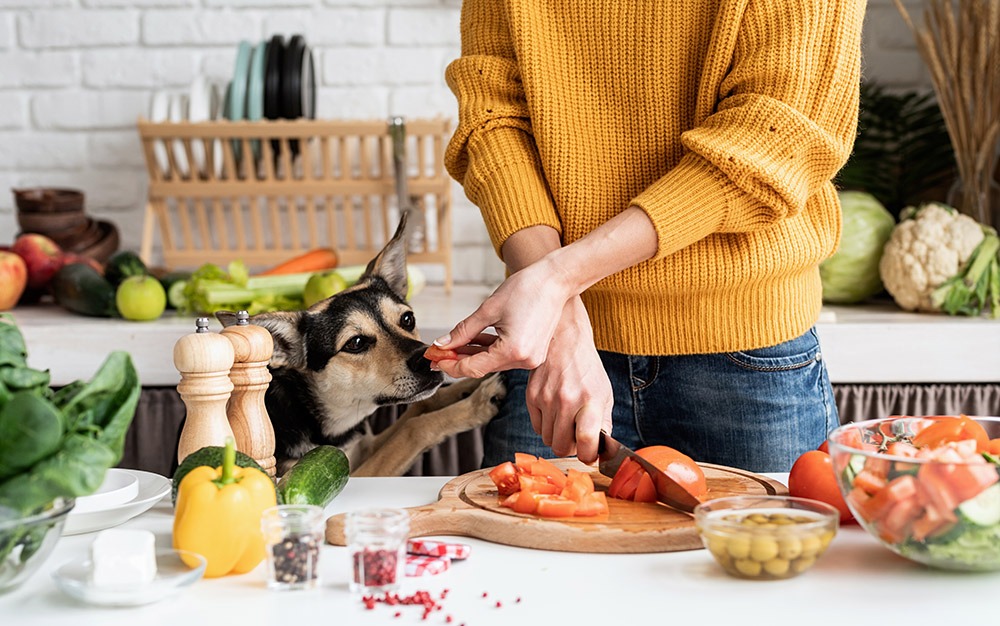Healthy, Provenance
Homemade Diets for Dogs
Could a homemade diet be better for your dog?
Let’s first look at what an ideal diet for dogs looks like.
The good news is that there is sound scientific evidence to show that dogs are omnivores, having evolved alongside humans over 10, 00 years ago. If you’re interested in the science, the landmark study was published in the Journal, Nature in 2013. This study showed that dogs possess a particular enzyme, amylase, which is needed to digest starch (carbohydrate). This is very different to wolves, who are carnivores and do not have the ability to tolerate carbohydrate in the proportions that domesticated dogs can.
Just like humans, dogs need nutrients from all of the five main food groups (in different proportions) to have a complete and balanced diet. These include:
- Starchy foods – which provide carbohydrates
- Meat/fish/egg – which provide high biological value protein
- Foods containing a healthy source of fat
- Dairy foods– to provide calcium and phosphorous and other minerals
- Vegetables/fruit – to provide vitamins.
A commercially prepared dog food will provide all of these nutrients but in some cases they may be in a synthetic format. For example, calcium may be added rather than supplied by the inclusion of milk in the recipe, in the same way that vitamins may be added rather than the vegetables or fruit that they are derived from. What is important is that commercially produced dog food must meet the guidelines of the European Pet Food Industry (FEDIAF). This set of guidelines for complete and complementary pet food for cats and dogs confirm the basic nutrient levels required by dogs and cats and manufacturers of commercial pet food must ensure that their foods reach these levels. If they do so they can be classed as complete and balanced. This ensures that dogs fed on foods which meet these guidelines will not experience nutritional deficiencies.
Although commercially prepared foods will have been analysed to ensure they meet these guidelines, you may be considering cooking for your dog for a variety of reasons:
- To provide ingredients that are fresh or organic with no preservatives or chemicals.
- Your dog has health issues and needs a therapeutic diet, especially if your dog has more than one medical condition.
- To be more involved in the dog’s care. There is so much misinformation around with regards to dog food that we can be forgiven for thinking that most of it is bad and full of additives. Coupled with this, the massive choice of dog food available to us now can be hugely overwhelming and can lead owners to decide to prepare their dog’s food themselves.
If you feel that a home cooked diet is the way forward for your dog then do get in touch.
Carole, is a qualified Canine Nutritionist and can offer bespoke recipes to suit your dogs’ own individual requirements.
NOTE: There are particular times in a dog’s life when a homemade diet is not appropriate and these are mainly when the nutritional needs for growth are high. For example in pregnancy, when feeding a litter of puppies as well as for puppies under the age of 12 months (18 months for a large breed puppy). In addition, dogs on weight loss diets should not be fed a homemade diet because weight loss is a slow, long-term process and it can be difficult to ensure requirements are met when feeding smaller portions of food.


